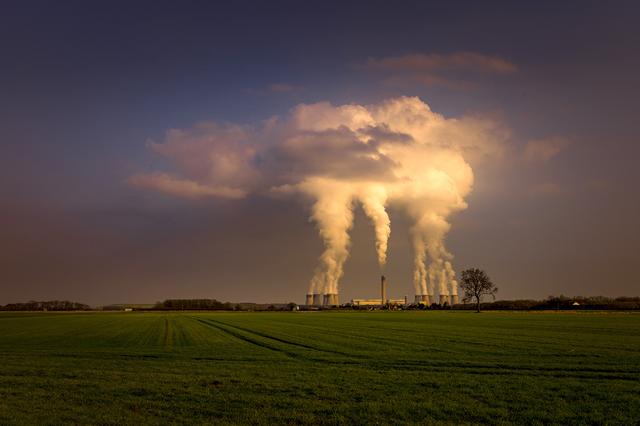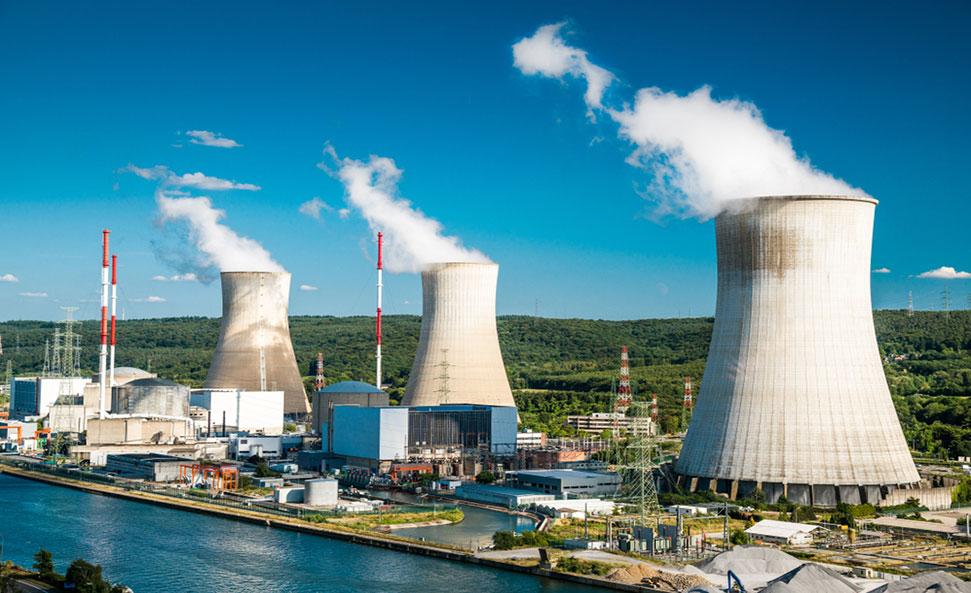18 steps you can take to help mitigate the effects of climate change
As the world prepares to emerge from the health crisis caused by the Corona pandemic, scientists and environmental activists are warning of a more serious crisis imposed by climate change that needs global attention and urgent action.
In a report published by the British newspaper "The Times", writer specializing in environmental issues Lucy Siegel says that a survey conducted earlier this year in 50 countries on attitudes towards climate action showed that an overwhelming majority of experts call for urgent action and consideration of what is witnessed The planet is currently an emergency.
We have to start right away
Last year, the world witnessed major environmental disasters, most notably forest fires, melting ice sheets and temperatures reaching record levels, while the countries of the world seek to limit global warming to less than two degrees Celsius, or at least 1.5 degrees Celsius, according to the recommendations of the Paris Climate Summit.
Next November, the United Kingdom will host the COP26 global climate summit in Glasgow, but this week's report from the United Nations' International Panel on Climate Change was a new wake-up call for humanity.
The report concluded that human activity “unequivocally” raises the temperature of the atmosphere, oceans and land, adding that global warming is expected to remain at the 1.5 degrees Celsius limit set by the Paris Agreement during the next two decades, before it is exceeded between 2041. and 2060 even if the world cuts carbon emissions.
But in the midst of these warnings, the writer says that there is some good news, as there is scientific consensus that if greenhouse gas emissions are reduced to zero, the warming will stop and the climate will stabilize within a decade or two.
But these efforts must begin immediately and without any delay - according to the writer - to reach a world without emissions and save the planet. These are some of the steps that can be taken on a personal level to contribute to protecting the earth and reducing the effects of climate change.
1. Monitor personal carbon consumption
The author recommends using the Carbon Footprint Calculator suggested by the World Wide Fund for Nature (WWF) and entering your details to find out how big your personal carbon footprint is, the total greenhouse gas emissions you need in your daily life.
The average per capita carbon footprint in the UK is 12.7 tonnes of CO2 per year. Despite the closures imposed by the “Covid-19” crisis, the goal set by the Paris summit, that is, to reduce emissions by 80%, is still elusive, according to the writer.
The author recommends using an application to track personal carbon consumption, such as the recently launched Pawprint application, which allows monitoring of carbon consumption just like a fitness monitoring application.
Among the ways to reduce carbon consumption are traveling by train instead of the car, vacationing nearby instead of going to faraway places, and continuing to work remotely instead of constantly commuting to offices.
2. Hardware repair
Extending the life of household appliances is one of the most effective things to offset emissions from their manufacture.
If you can't solve things with your own experience, go to specialized shops like Repair cafe (Repaircafe.org) and try to fix the broken device instead of buying a new one.
3. Heating device control
Home heating emissions make up nearly 10% of the UK's personal carbon footprint, and lowering the thermostat by one degree helps save 300kg of CO2 per year.


During the hot months, put the appliance on the summer setting (turn the heating very low or off), and during the winter, make sure to wear more clothes around the house so you can control the temperature of the appliance.
4. Reduce the use of plastic
Plastics are made from petroleum and release fossil fuels when burned, and less than 9% of the plastic consumed globally is recycled.
The best way to reduce the dangers of plastic is to reduce its use, which means cutting it out as much as possible in shopping and giving priority to non-plastic packaging, including those made of cardboard and glass, which are easily recyclable materials.
5. Use refillable packages
The writer recommends using refillable packaging, such as cups and refillable water bottles. In the midst of the health crisis, it is also preferable to use washable and reusable masks that are compatible with global standards for sanitary masks.
6. Use laundry filters
Over the past decade, most clothes have been made of synthetic fibres, and when they're washed in a washing machine, they release microscopic plastic particles. Scientists estimate that more than 6 million microfiber particles are leached from washing 6 kilograms of clothes.
A recent study published in the journal Nature found that microfibers suspected of being from laundry are affecting the Arctic. Specialists are currently working on developing filters that absorb these particles and reduce their dangerous effects on health and the environment.
7. Change the power grid
The world is rapidly moving towards relying on renewable energies to supply electrical energy, and these efforts can be supported by moving to an environmentally friendly network and contributing to reducing carbon emissions.
8. Use eco-friendly toilet paper
A study by the Ethical Consumer confirmed that the major brands of toilet paper are going in the wrong direction by focusing on raw materials from endangered forests and relying less on recycled wood pulp.
In order to help protect forests, make sure to use toilet paper that is made from eco-friendly materials.
9. Eat more plants
The writer believes that food is the main driver of climate change and the depletion of water and land, and that things cannot be corrected if the situation continues at the current pace.
Many experts stress that it is very difficult to remove emissions from meat production for several reasons, among them the fact that herds of sheep and cattle produce methane, one of the most powerful greenhouse gases. According to the author, switching to a plant-based diet will lead to a decrease in overall carbon emissions.
10. Using the electric car
Carbon footprint expert Mike Berners-Lee estimates that for every £1,000 spent on a new car, the production process emits 636kg of carbon dioxide.
The writer suggests switching to electric cars as much as possible, through purchase or rental, to reduce the environmental damage caused by traditional cars.
11. Reducing food ordering from outside
According to a shocking report published last year by Leeds University climate and consumption expert John Barrett, half of the UK's carbon emissions come from consumer services.
The author believes that it is time to reduce online food ordering and consume food at home for a longer period before buying more of it.
12. Water saving
Water companies are among the largest consumers of energy through water treatment and pumping into homes. Controlling water consumption, including the use of rainwater, helps reduce personal carbon consumption.
13. Expand your environmental efforts
The writer says that it is clear that the climate crisis is a global crisis that needs concerted efforts around the world, and everyone can contribute to this effort by joining environmental activists in different regions.
14. Exploitation of gardens
Millions of people around the world own gardens and green spaces that can be used appropriately to enhance climate protection efforts, by growing vegetables such as tomatoes, peppers and eggplant.
15. Supporting renewable crops
Investing in support of renewable crops grown in a way that is beneficial to the soil helps adapt to future climate challenges.
16. Investing in renewable energies
Shifting money toward financing renewables is helping to bring about tangible changes. More than 1,300 companies with assets of up to $14 trillion have pledged to phase out fossil fuels by the end of 2021. This investment may be through a change in the pension system, and toward retirement funds that do not support fossil fuels.
17. Change your pet's food
The dog or cat in your home is likely to increase their carbon footprint through the quality of the food you give them. Feeding dogs insect protein is a good option, as they emit 96% less greenhouse gases than beef.
18. Environmental Literacy
If you really want to dig deeper into environmental issues and the risks of carbon emissions, sign up for a short course from The Carbon Literacy Project, at the end of this short course you will receive a certificate enabling you to participate in the COOP Summit 26" in Glasgow.










